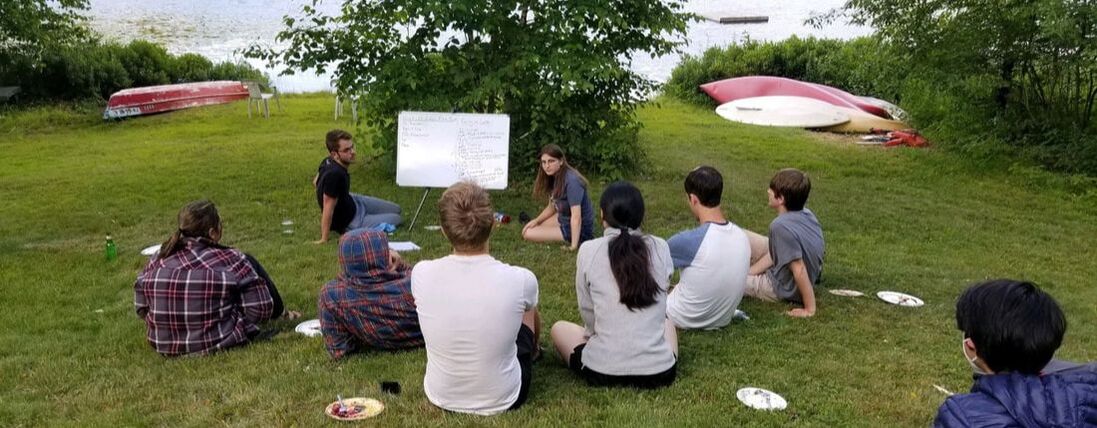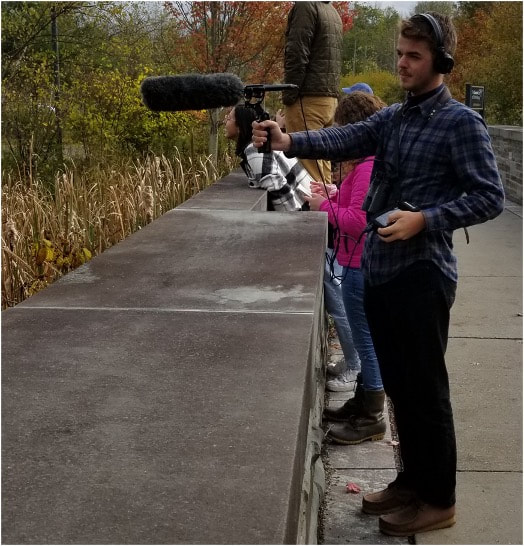TEACHING
As a science educator, I challenge and support my students to master foundational concepts, to develop a conceptual framework of biology enabling them to integrate new knowledge, and to appreciate the diverse ways in which scientists study the natural world. My teaching philosophy draws on problem-solving and experiential learning activities to actively engage students in scientific inquiry and to promote critical thinking.
I am committed to developing a community of scholars in the sciences that better reflects the diversity of our society. This begins in the classroom and is extended through opportunities in student-led research collaborations and participation in science outreach projects.
I am committed to developing a community of scholars in the sciences that better reflects the diversity of our society. This begins in the classroom and is extended through opportunities in student-led research collaborations and participation in science outreach projects.
CORNELL university
Field Methods in Avian Ecology (NTRES 2400)
 Fall 2021
Fall 2021
Course Description:
Students will learn and practice a variety of methodologies used for studying wild birds. In a 1 hr classroom session each week, students will discuss relevant scientific literature and prepare for the lab session. The 3 hr weekly lab session will be held at various field locations and students should be prepared to handle variable weather conditions. Students seeking to conduct independent research in avian ecology are encouraged to enroll. Note that one weekend field trip is required.
Students will learn and practice a variety of methodologies used for studying wild birds. In a 1 hr classroom session each week, students will discuss relevant scientific literature and prepare for the lab session. The 3 hr weekly lab session will be held at various field locations and students should be prepared to handle variable weather conditions. Students seeking to conduct independent research in avian ecology are encouraged to enroll. Note that one weekend field trip is required.
|
Learning Outcomes:
|
Independent Research for Credit (BIOG2990/4990)
BIOG 2990, Introduction to Research: Intended for students new to undergraduate research. Students enrolled in BIOG 2990 read the scientific literature, learn research techniques and assist with ongoing research. Credit hours are variable (maximum of 3 credits) and grading is S/U only. This course is a prerequisite for BIOG 4990.
“My class is supported by DataCamp, an intuitive learning platform for data science.”
BIOG 4990, Independent Research in Biology: Students get more deeply involved with ongoing research and work more independently on a research project of their own design leading to senior theses and publications in peer-reviewed scientific journals. The prerequisite for BIOG 4990 is the completion of one semester of BIOG 2990 or previous research experience. You will need to prepare a brief project description in collaboration with me as your research mentor as part of the BIOG 4990 application.
“My class is supported by DataCamp, an intuitive learning platform for data science.”
BIOG 4990, Independent Research in Biology: Students get more deeply involved with ongoing research and work more independently on a research project of their own design leading to senior theses and publications in peer-reviewed scientific journals. The prerequisite for BIOG 4990 is the completion of one semester of BIOG 2990 or previous research experience. You will need to prepare a brief project description in collaboration with me as your research mentor as part of the BIOG 4990 application.
Click to learn more about ongoing research opportunities in my lab.
©S.A. Kaiser 2012


